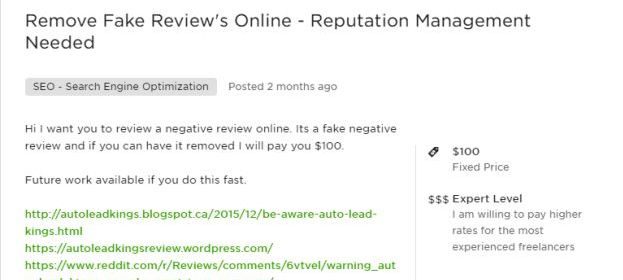 Ever since Open Banking was launched in January, the media has gone on an overdrive, warning bank customers about data breaches and urging them to be cautious about sharing their data with TPPs (Third Party Providers).
Ever since Open Banking was launched in January, the media has gone on an overdrive, warning bank customers about data breaches and urging them to be cautious about sharing their data with TPPs (Third Party Providers).
Fintech thought leader Chris Skinner accused the media of kissing “the banks’ backsides”.
But it’s not as though the media is always balanced while reporting about fintechs. That became very evident when I read What banks can learn from Amazon in Tearsheet. This article claims that banks don’t have enough products to sell and advocates them to partner with fintechs to increase their offerings portfolio.
This claim is ridiculous: An ex-banker told me that even a midsized bank has around 50 products and not enough bandwidth to sell them all. Apparently, sales teams at banks focus on high-yield products like home loan, mutual fund and insurance and don’t bother too much about digital payments, gift cards, etc. This resonates with my personal experience of trying to get a credit card for my daughter and running from one branch to another to buy a gift card. (For the record, I failed at both endeavors.)
“Banks don’t have enough products to sell to their customers".
Sorry @tearsheetco , but you're talking BS.
Let alone a giant US bank like Wells Fargo, even a midsized Indian bank has nearly 50 products & not enough bandwidth to sell them all.https://t.co/f6ZfvGl6P2
— Ketharaman Swaminathan (@s_ketharaman) February 14, 2018
Given that fintechs have abandoned their founding mission to disrupt banks and are now actively seeking partnerships with banks to ensure their survival, it doesn’t require a genius to guess whose cause Tearsheet was pandering to by making the absurd claim that banks don’t have enough products to sell.
Media has its own challenges and these “you said, I said” arguments won’t help Open Banking / PSD2.
Which seems to be in need of help.
It’s no secret that Open Banking hasn’t set the market on fire. According to Verdict:
The open banking era has started with a whimper.
There could be any number of reasons for that including lack of value proposition, security concerns, plain-and-simple inertia, and so on.
Open Banking's mission is to fulfill the supposedly acute & chronic craving of consumers to get more value out of their banking data. If it needs publicity to make consumers even aware of its existence, its founding premise is questionable.
— Ketharaman Swaminathan (@s_ketharaman) March 5, 2018
I once believed that, if fintechs provided strong value proposition via personalized money management offers, people will part with their banking data. I had second thoughts about that later and proposed automatic fulfillment of personalized offers as A Killer Feature For PFM On The Eve Of PSD2.
Now that was in the context of money management TPPs.
Coming to payment service providers who form another significant cohort of TPPs, I shared my personal view about their outlook in the comment thread below Chris Skinner’s post. Let me copy-paste it below:
Me: TBH most of the use cases in this blog post are available without Open Banking e.g. PayM, Play Store, Amazon 1-Click. Why risk giving online banking creds to 3rd parties? Media does have a point. IMHO, accusing it of kissing “banks’ backsides” is a bit harsh.
Tim Moss: Why risk it? If the merchant gave you a discount of 3-4% because you pay them directly via OpenBanking API, instead of using one of the card schemes, or gave you 20-30% discount if you didn’t use an MNO based payment. (the %s quoted are how much the merchant loses due to fees/costs of those payment schemes). Besides if you’re using Play Store, Amazon 1-Click, PayPal, PayM then you’ve already given your banking details to at least one third party (albeit a big one), why not give them to some more? ;-)
Me: (1) Merchant Fees for Debit Card is 0.25-0.5% versus 3-4% for Credit Card. I don’t know what’s the Merchant Fees for PayM but I’m sure it’s lower than that for Credit Card, if not Debit Card. Yet, I don’t know a single Merchant who gives a discount for use of Debit Card / PayM versus Credit Card. OTOH, when government / card networks remove the “No Surcharge” rule, Merchants are known to charge as high as 7.5% Surcharge even though the max Merchant Fees is 4%. In short, Merchants are greedy, as I’d highlighted in my blog post titled Do American Retailers Want To Have Their Cake And Eat It Too? Since the time I published that post, I’ve come across enough examples to justify extending the same opinion to merchants worldwide. So, I strongly doubt if any Merchant will give me a 3-4% discount for paying them directly via OpenBanking payment methods. (2) I’ve only kept my Credit Card – not online banking creds – on Play Store and Amazon 1-Click (and Uber and Ola). Open Banking PSPs demand online banking creds to access Account-to-Account payment methods. I see a lot more risk in handing over my online banking creds compared to my credit card details. Besides, A2A payments lack several benefits provided by credit card like rewards, deferred payment, superior fraud protection and proof of receipt. On top of that, they suffer from shortcomings like non-repudiation and zero fraud protection.
Now, all this was before the Facebook-Cambridge Analytica fracas broke.
The common man is now bound to be even more skeptical about assurances of safety of banking data given by fintechs / TPPs. “If Facebook can’t stop our data from being stolen by third parties, how can banks?”, I can hear them asking themselves.
Self-proclaimed tech company Facebook can’t ensure that third party apps comply with its own rules for data usage. How will banks that "want to be a tech company” ensure that third party fintech apps comply with third party Open Banking rules for data usage?
— Ketharaman Swaminathan (@s_ketharaman) March 19, 2018
In parallel, the meme “data is the new oil” has spread like wild fire. Banking customers must be wondering, “if oil costs $75/barrel, why am I getting nothing for my banking data?”
Fair questions, both.
Open Banking proponents have hammered the notion that “customers own their banking data, banks must open it up” but I don’t know a single TPP that has acknowledged to customers, “your data is valuable to us”, let alone offer to comp customers for their data.
That has to change for Open Banking to gain traction.
TPPs must reward customers more directly for accessing their banking data. Personalized offers are no longer enough compensation, particularly after the FB-CA scandal has triggered massive paranoia about security and privacy.
Fintechs must find a tangible way to compensate consumers for their banking data.
How can they do that?
Blockchain ahoy!
More specifically, by adopting the blockchain business model of cryptotokens.
TPPs can mint a new token and use it to pay banking customers for the privilege of accessing their banking data. Conceptually, this token – let me call it Open Banking Coin for the moment – is not very different from Brave browser and its associated Basic Attention Token, which reward users for consuming content and viewing ads.

The retail industry has already started rewarding consumers for their shopping history data via cryptotokens.
If fintechs did that, it would be a very pragmatic approach to drive adoption of Open Banking, especially in the current climate of heightened concerns about security and privacy of personal data.
I’m aware that cryptotokens and their selling mechanism ICO are under a cloud in various jurisdictions. Accordingly, fintechs may want to think through the legal nuances of this space before launching OBCoin. Alternatively, if they believe that Fintechs Need Guts More Than Lawyers!, they can jump headlong into the cryptoworld and navigate the challenges as they go along.
Either way, OBCoin will provide a much-needed Blockchain boost to Open Banking.
*: Gayatri Ketharaman is my daughter. She’s pursuing a Bachelor’s degree in User Experience Design.
DISCLAIMER: The Blockchain world has an eclectic mix of elements like cryptocoin, ICO, and so on whose legal status is ambiguous and swings wildly between various states of the spectrum such as illegal, maybe-illegal, not-illegal and legal and from one country to another. Before following through with the guidance given in this post, please consult your legal counsel about their legal status in your respective jurisdiction. We offer no guarantees as to legality of any of the guidance provided in this post.

